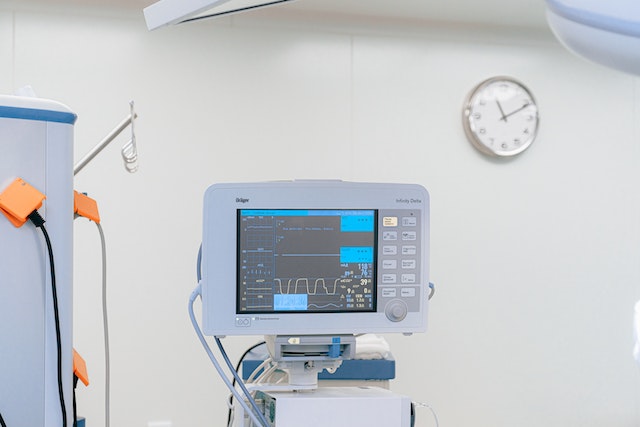Enterprise Resource Planning (ERP) stands as an indispensable software solution essential for the optimization of organizational processes. By integrating departments and enabling real-time data sharing, ERP enhances operational efficiency, streamlines workflows, and supports informed decision-making. In manufacturing, ERP’s centralized platform for data management, resource allocation, and process monitoring drives productivity and reduces costs.
Table of Contents
Understanding the Medical Device Industry
The medical device sector is characterized by its intricate manufacturing procedures and exacting quality prerequisites. The production of medical devices entails navigating a sophisticated matrix of regulations, guaranteeing product excellence and safety, and adhering rigorously to compliance benchmarks. As the industry progresses to meet escalating requisites and technological strides, the imperative for streamlined production workflows intensifies. The capacity of ERP systems to contend with intricacy, oversee regulatory conformity, and enable comprehensive transparency emerges as pivotal within the landscape of medical device manufacturing.
ERP’s Role in Medical Device Production
ERP systems assume a versatile role in the manufacturing of medical devices. They harmonize and amalgamate diverse processes, encompassing design, procurement, inventory management, production scheduling, and distribution. Through affording a comprehensive perspective on resources, materials, and tasks, ERP fosters proficient allocation and optimization of resources. Moreover, ERP systems play a pivotal role in upholding quality control, guaranteeing conformity with regulatory benchmarks, curating exhaustive audit documentation, and facilitating traceability across the production trajectory. Furthermore, ERP contributes to the realm of demand projection and strategic planning, mitigating the potential pitfalls of surplus production and stock insufficiencies.
Benefits of Implementing ERP in Medical Device Production
The incorporation of ERP systems into the production of medical devices yields a spectrum of advantages. A prominent benefit is the enhancement of operational efficiency. Through the automation of tasks, mitigation of manual interventions, and the fostering of collaborative efforts across departments, ERP seamlessly streamlines workflows while expediting decision-making processes. Moreover, medical device ERP‘s real-time quality metrics monitoring and meticulous upkeep of compliance documentation contribute extensively to the augmentation of product quality and adherence to regulatory standards. This, in effect, mitigates the potential for costly errors and the necessity of recalls. Noteworthy also is the reduction of costs achieved through improved resource management, optimization of inventory levels, and minimization of waste. Lastly, ERP systems play a pivotal role in expediting the time-to-market for medical devices by effectively facilitating swift responses to dynamic market changes and consumer demands.
Essential Factors to Evaluate
When contemplating the implementation of an ERP system within the medical device manufacturing sector, the utmost importance lies in the meticulous selection of an appropriate ERP solution. This system should encompass the provision of customization capabilities tailored to harmonize with the industry’s distinct requirements while simultaneously possessing the capacity for scalability to aptly accommodate forthcoming expansion.
Equally pivotal are change management strategies and comprehensive employee training, both of which constitute integral facets of a triumphantly executed implementation endeavor. Effectively surmounting resistance to change, nurturing the adoption of the new system among users, and ensuring the adeptness of employees in utilizing the system are all pivotal factors contributing to the seamless integration and ultimate prosperity of the ERP framework.
Potential Challenges and Mitigation Strategies
Although ERP systems provide a plethora of advantages, they also present challenges that require attention. Of particular significance, data security and privacy become paramount, particularly within the medical sector. It is imperative to institute robust measures for safeguarding data and preserving privacy and to meticulously adhere to regulatory frameworks like GDPR and HIPAA. Moreover, the process of integrating ERP with pre-existing systems can introduce complexities. Attentive planning, strategic data migration, and the establishment of synchronization protocols become imperative in guaranteeing a smooth transition and upholding data integrity.
Future Trends: ERP and Medical Device Production
The outlook for ERP in the realm of medical device production holds considerable promise. Cloud-based ERP systems are garnering increased attention owing to their capacity for scalability, heightened accessibility, and the associated reduction in infrastructure expenditures. Concurrently, the integration of Internet of Things (IoT) technology represents an emergent trajectory, empowering the real-time oversight of equipment and procedural workflows. Moreover, the assimilation of artificial intelligence and predictive analytics into ERP systems stands to redefine key aspects such as demand projection, production coordination, and strategic decision-making.
Conclusion
ERP systems are indispensable assets in medical device production, streamlining processes, enhancing quality control, reducing costs, and accelerating time-to-market. Successful case studies underscore their significant contribution to advancing the industry. As technology evolves, trends like cloud-based solutions, IoT integration, and AI-driven analytics will solidify ERP’s role as a driving force in medical device manufacturing.

